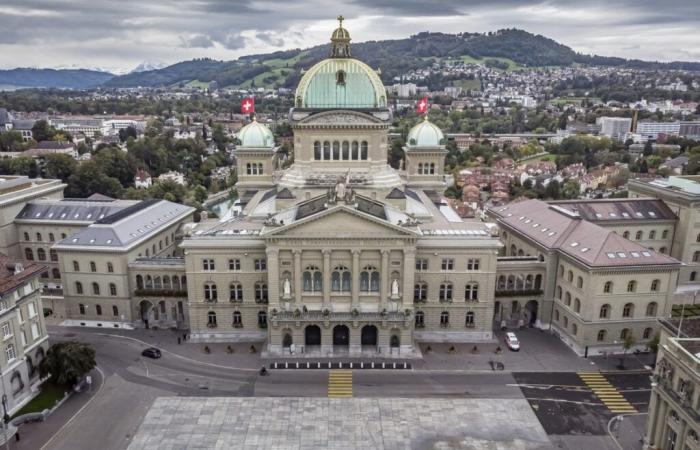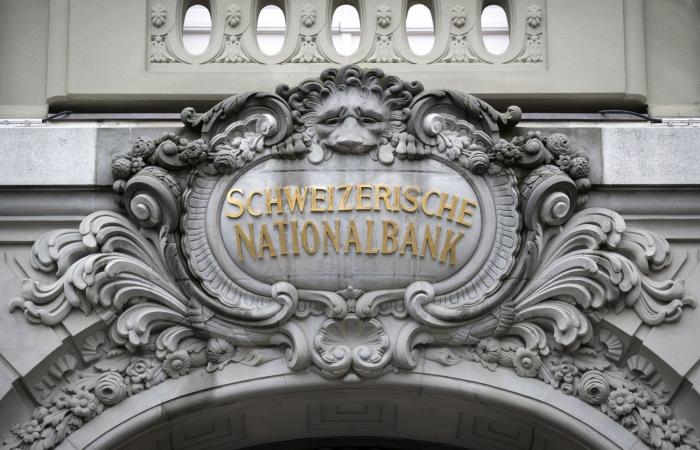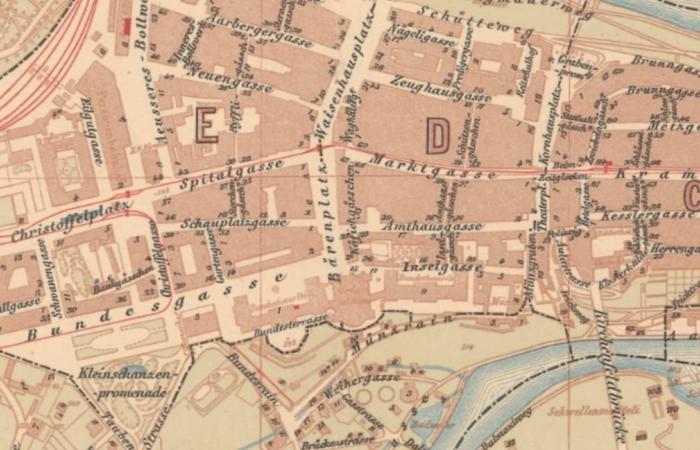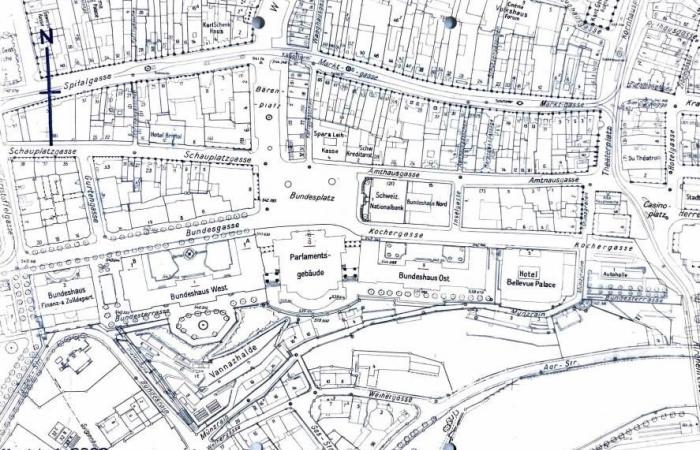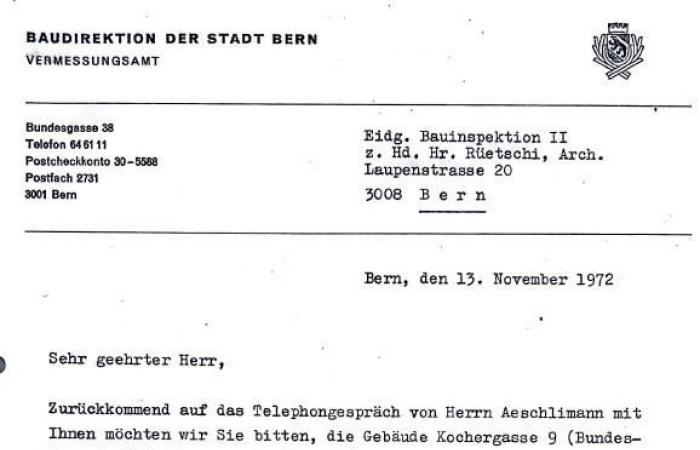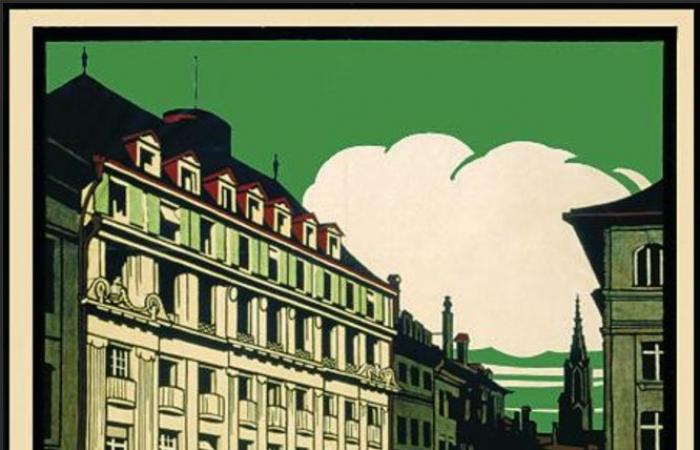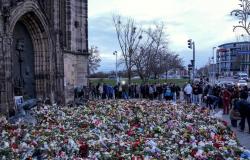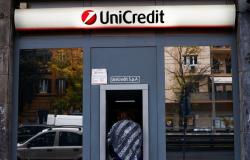The Federal Palace with the Federal Square in Bern on Sunday, September 27, 2020. The first Federal Palace, i.e. today's west wing, is located to the right of the Federal Dome. The east wing is on the left. Facing the east wing, at the bottom left of the photo, we can see the headquarters of the BNS, enthroned at No. 1 Bundesplatz.
Keystone/Thomas Hodel
It is one of the curiosities of the federal city which intrigues everyone in Bern. The Federal Palace does not have the honors of No. 1 on the Federal Square. This prestigious address is hosted by… the Swiss National Bank.
This content was published on
December 23, 2024 – 12:28
In the aisles of Parliament, few elected officials know the postal address of the Federal Palace. “Somewhere on the Bundesplatz? », Guess green national councilor Delphine Klopfenstein Broggini. “At No. 1? » ventures his liberal colleague Nadine Gobet.
To the great dismay of parliamentarians, however, it is the Bern headquarters of the Swiss National Bank which displays No. 1. “Symbolically, this says a lot about the role of finance in Switzerland,” comments Delphine Klopfenstein Broggini.
An earlier Palace
A Bernese curiosity… Especially since the Palace of Parliament was inaugurated in 1902, a few years before the creation of the Swiss National Bank, in 1905. Inaugurated in 1912, the building of the issuing institute even saw its dimensions be reduced so that they do not overshadow the east wing of the Federal Palace.
Jean-Daniel Gross, who is responsible for the protection of built heritage for the City of Bern, is also unaware of the origin of the numbering. He guesses technical reasons linked to a place which was created “by happy coincidence”.
Federal Square “was not planned for a long time. We had the opportunity to do it when we saw that it was taking shape,” he adds. It was first with the museum building, then with the Federal Palace, “that the idea of the main square was conceived”.
The financial center on the Federal Place
A large square where the banks are crowded. In addition to the National Bank, there are still Credit Suisse at number 2, the Valiant bank at number 4 and the Bernese Cantonal Bank at number 8. The Parliament is in fact the only building on the square which is not a bank.
The famous SNB pediment overlooking Bundesplatz 1 in Bern.
Keystone / Anthony Anex
“It can be interpreted that the financial institutes sought proximity to politics. But maybe it's simpler. It is a place created late and which offered representative and highly sought-after land. It is quite logical that we find institutes there which had the means to finance them,” explains Jean-Daniel Gross.
Island Lane
Why do two banks still have postal precedence over the Palace of Parliament today? The City of Berne surveyor was also unaware of this. But, piqued by our question, Christine Früh went through the municipal archives which reveal the long history of the address of the Federal Palace. The building spent most of its existence not on the square, but on the street.
When the authorization to build it was issued, “the square did not yet exist, it was going to be built. There was the street that ran in front of it, and in 1894 it was still called Inselgasse,” explains Christine Früh. The Federal Palace therefore humbly took over the address of the building it replaced, 15 Inselgasse – the “Island Lane” in French.
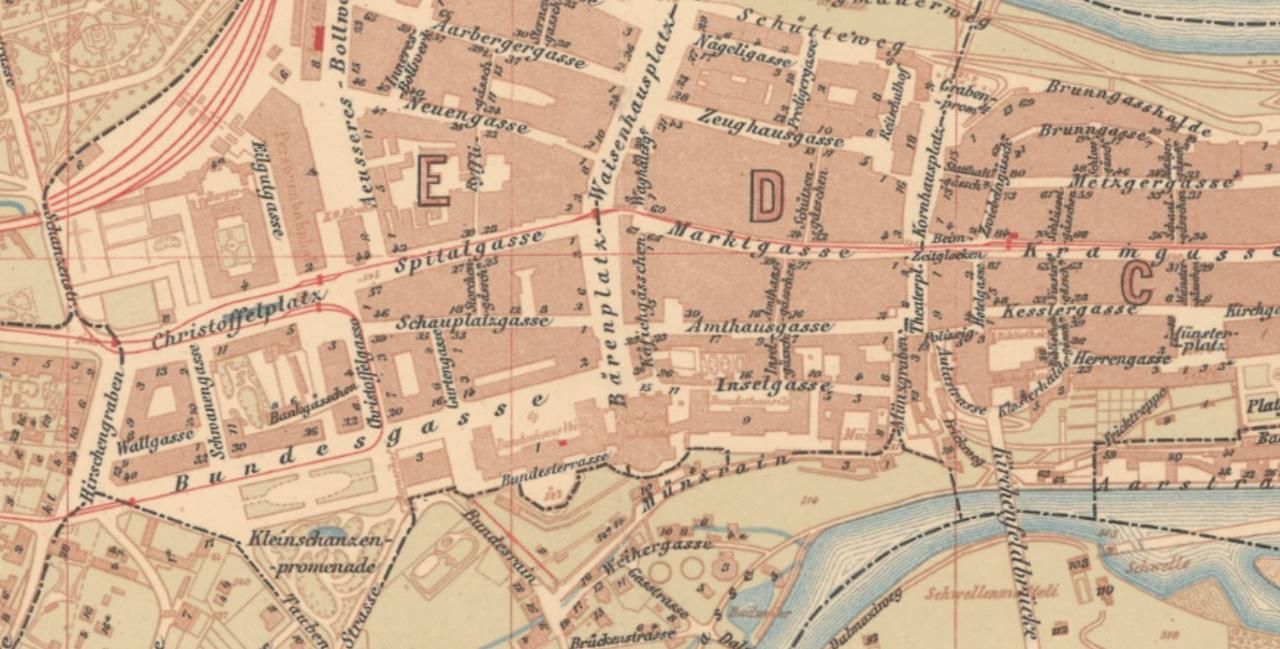
A map of the historic city center of Bern from 1895. At the intersection of Bärenplatz, Bundesgasse and Inselgasse, between the “Bundeshaus Ost” (built between 1888 and 1892) and the “Bundeshaus West” (built between 1852 and 1857), we find the “Parlam. Gebäude”, i.e. the Parliament building, which today is called the “Federal Dome”. On this map, construction of this central part of the Federal Palace had only just started the previous year, in 1894. The building was inaugurated in 1902.
City of Bern, Geoportal
And the Federal Square was
A few years later, a building that stood on the large square in front of the Palace was destroyed, a space which was then named “Federal Square”. And the first building to be erected there, in 1909, was none other than the Swiss National Bank.
“Why at that time, no one had the idea of placing the Parliament, which already existed, at No. 1, Federal Place, I cannot say. We don’t know,” smiles the municipal surveyor. “I guess the Parliament building was so well known that the address didn't matter. The fire brigade didn't need the address, neither did the ambulances or the Post Office. For mail, all you had to do was write 'Federal Palace' and the Post Office knew where to deliver it. »
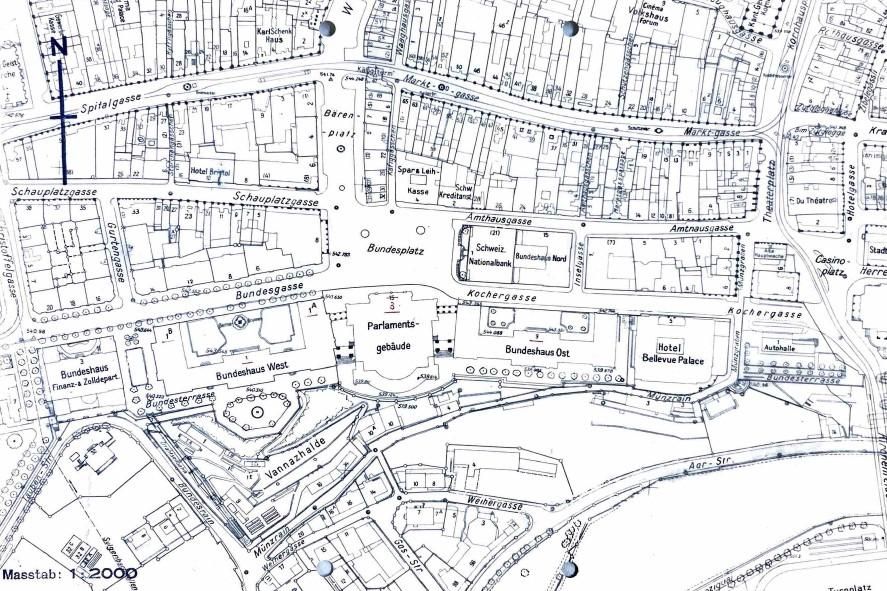
On this map from 1972, the Bundesplatz is well represented. We easily notice the large clearance made by the destruction of the old building at the beginning of the 20th century, which made it possible to transform the very elongated “Bärenplatz” into a more airy “Bundesplatz”.
Bern City Archives
Four addresses
The Parliament even changed its address several times, with Inselgasse becoming Theodor-Kochergasse and then Kochergasse, its current name. But the story doesn't end there.
At the beginning of the 1970s, Bernese municipal regulations changed and now required buildings to display their number on the facade. “That’s when someone had the idea of addressing Parliament on the square,” Christine Früh supposes. No. 1 having already been occupied for 60 years and No. 2 for 50 years, a number 3 will be mounted in 1972 on the facade of the Palace.
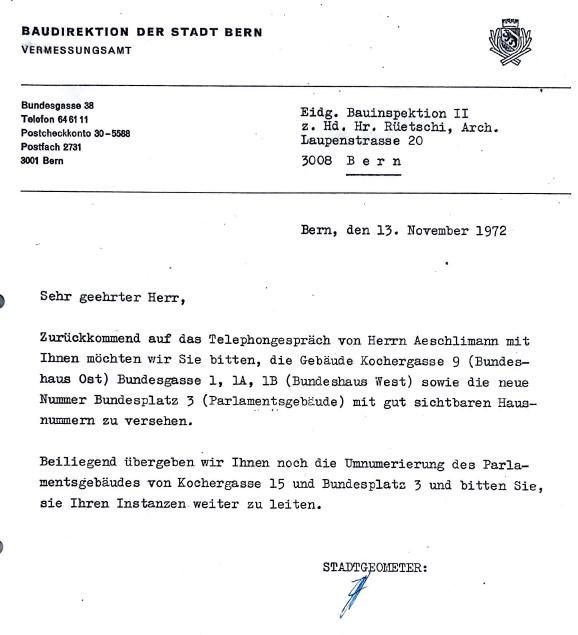
A letter from a surveyor from the city of Bern dating from 1972, requesting that the services of the Confederation install No. 3 in a clearly visible manner on the facade of the Federal Palace.
Bern City Archives
A possible exchange
Today, a number exchange is “technically feasible”, “the City of Bern would not object to it”, specifies the surveyor. It would still be necessary for the Confederation and the National Bank to agree and for the SNB to agree to sell its prestigious No. 1, which it has displayed for 115 years.
“I think that, symbolically, it would be good for the Federal Palace to be at No. 1,” said Friborg national councilor Nadine Gobet. Geneva resident Delphine Klopfenstein Broggini agrees: “I believe that the Federal Palace should have the central square. Even if he actually has it. »
Parliament could take back No. 2
Although it may never have the honors of No. 1, Parliament could extend beyond the Federal Square, to No. 2, in the branch that Credit Suisse has occupied since 1922.
The bank having been absorbed by UBS, it sold 1,400 m2 of premises that the Parliament services coveted in order to install a visitors center. The aim is to be able to organize exhibitions and mainly welcome some of the approximately 100,000 annual visitors to the Federal Palace.
The project was opposed by a motion from a UDC parliamentarian. An opposition swept away at the beginning of December by the National Council.
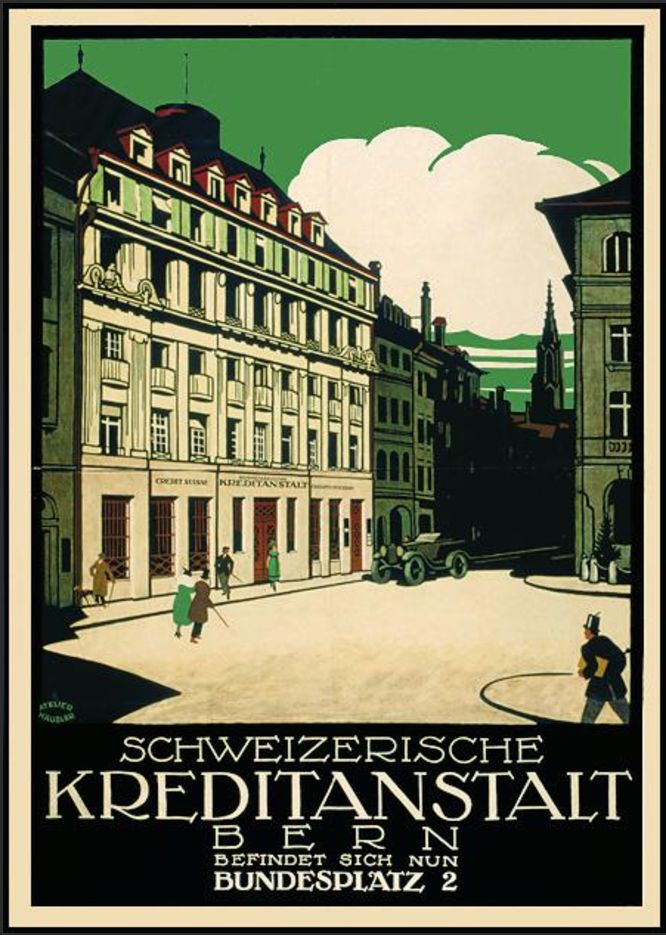
Poster produced around 1920 by the Häusler workshop for Credit Suisse, newly installed on the Federal Square in Bern. The poster comes from the Swiss National Library and can be consulted online on the website of the Historical Dictionary of Switzerland.
DHS – Historical Dictionary of Switzerland

